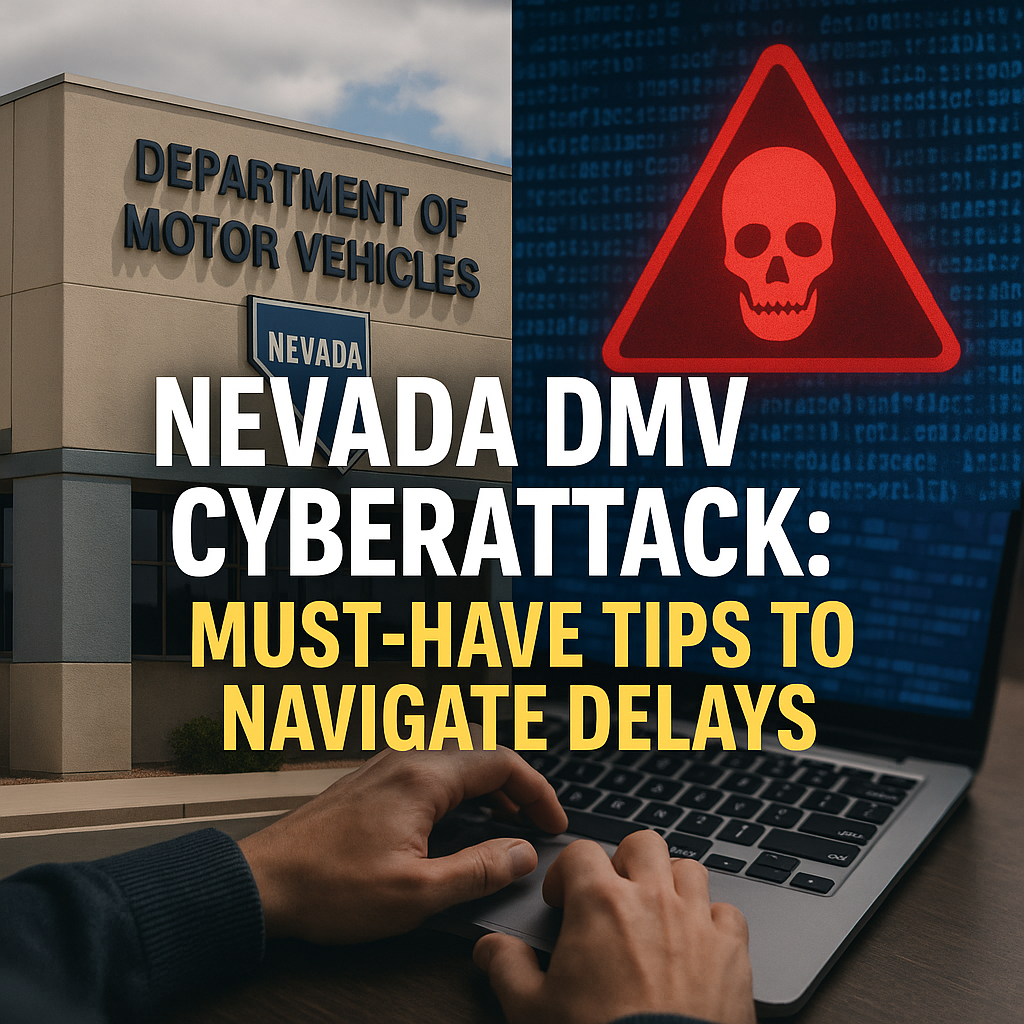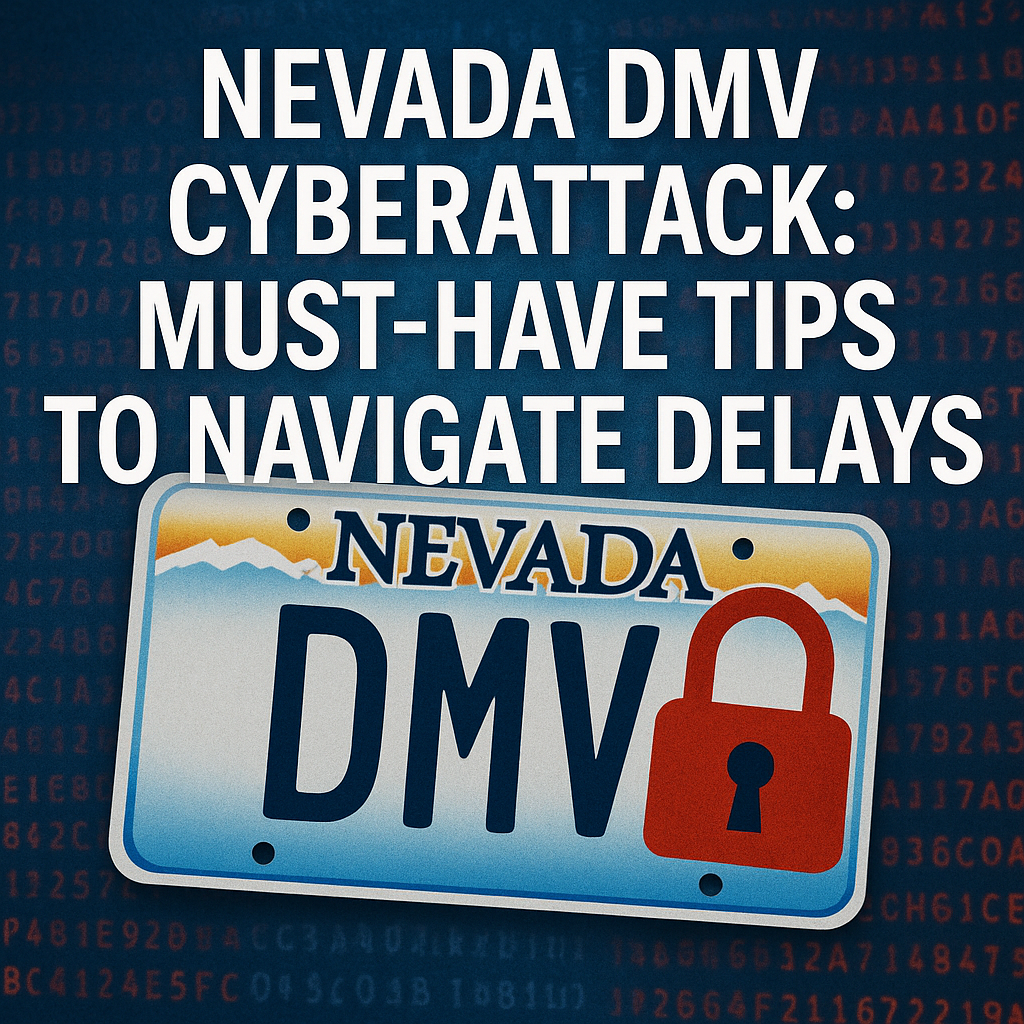Nevada DMV Cyberattack: Must-Have Tips to Navigate Delays
Nevada DMV Cyberattack: Must-Have Tips to Navigate Delays
The recent Nevada DMV cyberattack has thrown a wrench into the daily lives of many residents, with delays impacting services crucial to countless individuals. In the wake of this breach, chaos has ensued, leaving people grappling with confusion, especially regarding matters like in-state tuition eligibility. This article aims to clarify the situation and provide essential tips to navigate the ongoing delays stemming from this incident.
Understanding the Cyberattack’s Impact on DMV Services

The Nevada Department of Motor Vehicles (DMV) has experienced significant service disruptions following a cyberattack that compromised their online systems. Reports highlight that many individuals seeking appointments or trying to access essential services faced extended waiting times, contributing to frustration and uncertainty.
Service Delays and Complications
Residents have reported difficulties in scheduling appointments and accessing online services, including vehicle registration and obtaining driver’s licenses. The DMV has acknowledged the challenges faced by its customers, particularly in terms of critical deadlines related to in-state tuition eligibility for students.
According to a report from 8 News Now, “Delayed DMV appointments due to Nevada cyberattack causing confusion for in-state tuition eligibility,” many aspiring students are finding themselves caught in the crossfire, as enrollment deadlines loom. The cyberattack has created a situation where essential documents, crucial for tuition-related processes, are inaccessible, sparking confusion among students and their families.
Tips for Navigating DMV Delays
1. Stay Informed
Keep an eye on updates from reputable news sources and the official DMV website. Regularly checking these platforms can help you stay informed of any changes or resolutions regarding service availability.
2. Utilize Alternative Channels
While online services may be limited, consider reaching out to the DMV via phone or visiting local offices if feasible. Sometimes, in-person visits can expedite the process, although it’s wise to check beforehand if appointments are still necessary due to the ongoing delays.
3. Prepare Documentation Ahead of Time
To avoid further complications, gather all necessary documentation before attempting to access DMV services. This might include identification, proof of residency, and any paperwork required for specific transactions. Ensuring you have everything on hand can save time and hassle during your visit.
4. Look for Temporary Solutions
In cases where DMV services are accessed for time-sensitive requirements, like in-state tuition applications, find out if there are temporary measures or extensions available due to the cyberattack. Many institutions may offer leniency given the circumstances, so be proactive in reaching out to your school’s admissions office.
5. Stay Patient but Persistent
With the DMV’s services heavily impacted, patience is essential. Persistence will also serve you well; continue to try and reach out to their customer service or visit local offices, especially as the situation evolves.
Do We Have a Clear Path Forward?
While the Nevada DMV continues to grapple with the ramifications of the cyberattack, opinions vary on its recovery timeline and the effectiveness of current measures being implemented. Some experts warn against over-reliance on online functionality in essential services, citing this incident as a crucial learning moment for state departments. Others believe that the DMV’s recovery measures, once fully implemented, will restore functionality in a relatively timely manner.
The Review-Journal notes that while efforts are underway to fortify systems against future attacks, the immediate focus remains on restoring services to the public. As stated by a state official, “We are working diligently to mitigate the effects of this cyber incident and to ensure that essential services are restored as quickly and efficiently as possible.”
Conclusion
The Nevada DMV cyberattack serves as a sobering reminder of vulnerabilities in our digital infrastructure. While residents navigate the aftermath through a sea of delays and confusion, armed with the right information and strategies, they can better manage their interactions with DMV services during this turbulent time. The key takeaway remains that staying informed, prepared, and patient may ease the burdens posed by this disruptive incident.





